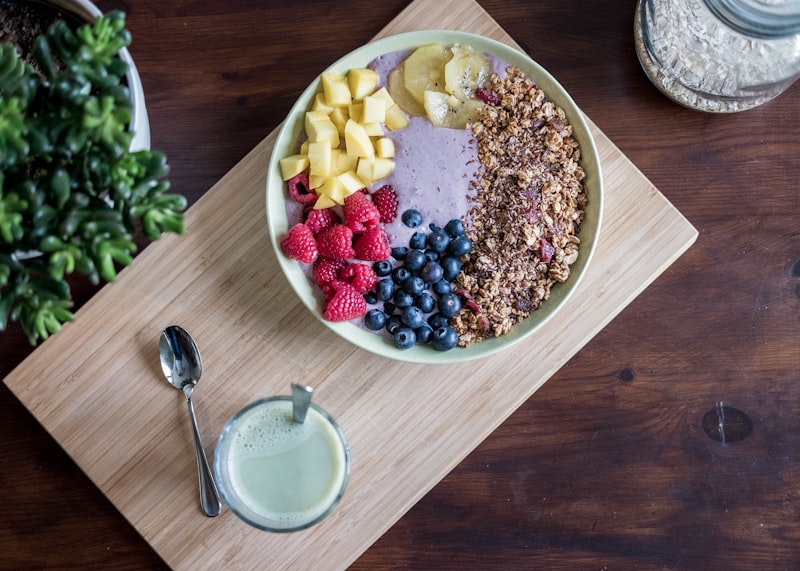Are you looking to enhance your digestive health naturally? Probiotics might just be the solution you’ve been searching for. These tiny beneficial bacteria are known for their remarkable ability to support gut health and overall well-being. But what exactly are probiotics, and how do they work their magic?
Probiotics are live microorganisms that, when consumed in adequate amounts, offer numerous health benefits. They are often referred to as “good bacteria” because of their positive effects on the digestive system. These microorganisms can be found in certain foods like yogurt, kefir, sauerkraut, and kimchi, as well as in dietary supplements.
One of the key roles probiotics play is in maintaining a healthy balance of gut bacteria. Our digestive tract is home to trillions of bacteria, both good and bad. When this balance is disrupted, it can lead to various digestive issues such as bloating, gas, diarrhea, or constipation. By introducing more probiotics into your diet, you can help restore this balance and support optimal digestive function.
Moreover, probiotics have been studied for their ability to strengthen the intestinal barrier, which helps prevent harmful substances from crossing into the bloodstream. This can potentially reduce inflammation and improve overall immune function.

Choosing the right probiotic strain is crucial as different strains offer different benefits. For instance, Lactobacillus and Bifidobacterium are two common genera known for their digestive health benefits. It’s essential to select a probiotic supplement that matches your specific health needs and consider consulting with a healthcare professional for personalized recommendations.
Unlocking Gut Health: How Probiotics Can Transform Your Digestive System
Curious about how to revitalize your digestive system naturally? Let’s dive into the world of probiotics and their incredible impact on gut health.
Probiotics are like the superheroes of your digestive tract, fighting off the villains (bad bacteria) and restoring harmony within your gut. These beneficial bacteria, found in foods like yogurt, kefir, and sauerkraut, work wonders by promoting a healthy balance in your microbiome. Think of them as tiny warriors, battling to keep your gut flora in check.
But why should you care about gut health? Well, your digestive system is not just about processing food; it plays a pivotal role in your overall well-being. A balanced gut microbiome not only aids digestion but also supports immune function and even influences your mood and mental health.
When your gut is happy, you’re more likely to experience fewer digestive issues like bloating and indigestion. Probiotics help in breaking down food more efficiently, ensuring you get the most nutrients out of what you eat. Plus, they can be your go-to allies during times of stress or when taking antibiotics, helping to replenish the good bacteria that might be depleted.
So, how can you incorporate more probiotics into your diet? Start by adding a serving of yogurt with live cultures to your breakfast or enjoying a refreshing glass of kombucha. These small changes can lead to significant improvements in your digestive health over time.
In essence, probiotics aren’t just another health trend—they’re a scientifically-backed way to nurture your gut and boost your overall vitality. Ready to unlock the potential of your digestive system? Embrace the power of probiotics and embark on a journey towards better gut health today.
The Ultimate Guide to Choosing the Right Probiotic for Digestive Wellness

Firstly, consider the strain specificity. Different probiotic strains have varying effects on the body. For instance, Lactobacillus acidophilus is known for its ability to break down lactose, while Bifidobacterium bifidum helps maintain a healthy balance of bacteria in the intestines. Understanding your specific needs can guide you towards the most effective strain.

Secondly, potency matters. The potency of a probiotic is measured in colony-forming units (CFUs), indicating the number of viable bacteria present in each dose. Higher CFUs generally mean a more potent product, capable of delivering stronger health benefits. However, the optimal CFU count can vary depending on individual health conditions.
Thirdly, check for viability. Probiotics are sensitive to heat and moisture, which can affect their effectiveness. Look for supplements that guarantee live and active cultures through the expiration date, ensuring you receive the full benefits up until the last dose.

Furthermore, consider the additional ingredients. Some probiotics come with prebiotics, which are fibers that nourish the probiotic bacteria in your gut, enhancing their survival and growth. This symbiotic relationship can amplify the benefits of probiotic supplementation.
Lastly, consult with a healthcare provider. While probiotics are generally safe for most people, individual health conditions and medications may interact with probiotic strains differently. A healthcare professional can provide personalized recommendations based on your medical history and dietary needs.
By choosing a probiotic supplement tailored to your specific health goals and needs, you can harness the power of beneficial bacteria to support digestive wellness and overall vitality.
Boost Your Gut: Probiotics and Their Role in Digestive Health
Wondering how to give your gut a boost? Enter probiotics—the tiny superheroes of digestive health! Probiotics are live bacteria and yeasts that are good for your health, especially your digestive system. They are often called “good” or “helpful” bacteria because they help keep your gut healthy.
Imagine your gut as a bustling city, with trillions of bacteria living and working together. Just like in a city, where a balance of residents keeps things running smoothly, your gut also needs a balance of bacteria. Probiotics play a crucial role in maintaining this balance by fighting off harmful bacteria and helping digest food properly.
But that’s not all—probiotics do much more than aid digestion. They also support your immune system, enhance nutrient absorption, and even contribute to mental health. Research suggests that a healthy gut microbiome, fueled by probiotics, can positively impact mood and cognitive function.
So, how can you get more probiotics into your daily routine? Fermented foods like yogurt, kefir, sauerkraut, and kimchi are excellent natural sources. These foods undergo a fermentation process that encourages beneficial bacteria to thrive. If you prefer a more convenient option, probiotic supplements are widely available and offer a concentrated dose of beneficial bacteria.
Whether you choose yogurt with live cultures or a daily probiotic supplement, incorporating probiotics into your diet can help maintain digestive balance and support overall well-being. Start small, observe how your body responds, and enjoy the benefits of a happier, healthier gut!
From Belly Woes to Gut Bliss: Probiotics’ Impact on Digestive Issues

Have you ever wondered about the secret to a happy gut? It might just lie in the tiny world of probiotics. These friendly bacteria are more than just a health trend—they could be the key to solving your digestive woes and restoring balance to your gut ecosystem.
Probiotics work wonders by supporting the natural balance of bacteria in your digestive system. When this delicate balance is disrupted—often due to stress, poor diet, or antibiotics—it can lead to digestive issues like bloating, gas, or even more serious conditions. But fear not! Introducing probiotics into your daily routine can help replenish and maintain that balance, promoting smoother digestion and overall gut health.
Imagine your gut as a bustling city, where probiotics act as friendly commuters keeping everything running smoothly. They crowd out harmful bacteria, produce essential nutrients, and even strengthen your gut lining, reducing the risk of leaky gut syndrome. With their help, you can bid farewell to those uncomfortable belly blues and welcome a newfound sense of gut bliss.
But not all probiotics are created equal. Different strains have different benefits, so it’s essential to choose wisely based on your specific needs. For instance, Lactobacillus and Bifidobacterium strains are well-known for their digestive benefits, while Saccharomyces boulardii can be particularly effective against diarrhea associated with antibiotics.
Integrating probiotics into your lifestyle doesn’t have to be complicated either. They’re readily available in various forms, from yogurt and kefir to supplements. Just a daily dose can make a significant difference in how your gut feels and functions.
So, whether you’re battling with occasional indigestion or aiming for long-term gut health, probiotics offer a natural, science-backed solution. Start small, observe the changes, and let these beneficial bacteria work their magic from within. Your gut—and your overall well-being—will thank you for it.
Frequently Asked Questions
Can probiotics help with digestive disorders like IBS or diarrhea?
Discover how probiotics can potentially alleviate symptoms of digestive disorders such as IBS or diarrhea. Learn about their role in promoting gut health and managing symptoms effectively.
Are there any side effects of taking probiotics for digestive health?
Learn about potential side effects of probiotics for digestive health, including minor symptoms like gas or bloating, which usually subside with continued use. Severe side effects are rare but consult your healthcare provider if you experience persistent discomfort.
What foods naturally contain probiotics?
Discover which foods naturally contain probiotics to support gut health. Learn about fermented foods like yogurt, kefir, sauerkraut, and kimchi, which are rich sources of beneficial bacteria.
How do I choose the right probiotic supplement for digestive health?
Learn how to select the best probiotic supplement for digestive health with our concise guide. Discover key factors like strain diversity, CFU count, and shelf stability that ensure effectiveness.
What are probiotics and how do they benefit digestion?
Learn about probiotics and their benefits for digestion. Discover how these live microorganisms support gut health by aiding digestion and maintaining a balanced gut flora.


